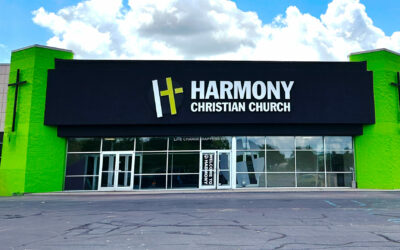 I’m currently reading the book Ready Player One. The majority of the book takes place in a virtual world called Oasis. Players interact within Oasis through special equipment that immerses them within the digital universe, much like modern virtual reality headsets. With the right equipment, Oasis can feel just like real life. In fact, in Ready Player One most people live their life more in the digital world than in the real world. People work at their jobs and conduct business in Oasis, they have dates, meet with distant family, and even attend church in the virtual world while ignoring the problems in the physical world. As the book goes on, the protagonist begins to understand the problems created by replacing the real world with a digital substitute.
I’m currently reading the book Ready Player One. The majority of the book takes place in a virtual world called Oasis. Players interact within Oasis through special equipment that immerses them within the digital universe, much like modern virtual reality headsets. With the right equipment, Oasis can feel just like real life. In fact, in Ready Player One most people live their life more in the digital world than in the real world. People work at their jobs and conduct business in Oasis, they have dates, meet with distant family, and even attend church in the virtual world while ignoring the problems in the physical world. As the book goes on, the protagonist begins to understand the problems created by replacing the real world with a digital substitute.
While the current landscape of the internet and social media is nowhere close to Oasis in Ready Player One, the relevance of its message about digital communities vs real communities cannot be understated. Technology is helping the world become more connected every day. Digital communities are exploding at an exponential rate, and the Church must decide to either embrace these digital communities, and if so to what extent, or ignore them. How the Church as a worldwide movement decides to react to these digital communities will affect its growth in the coming decades.
I personally believe that the Church can greatly benefit from leveraging this relatively new technology to spread the Gospel. Historically the Church has been quick to embrace new advances in technology in order to spread the message of Jesus. Take, for instance, the printing press. One of the very first works that was widely distributed due to the invention of the printing press was The Bible. Once Europe, due to advances in shipbuilding and navigation, started to explore the seas in search of new lands, among their very first exports was Christianity. For an example that is a bit closer to the current year, just look at your cell phone. The Bible App is one of the most downloaded apps ever. The Church has a rich history of taking advantage of new technology, but that’s the problem; that’s only in its history.
Presently, churches are becoming increasingly resistant in embracing the new and novel. The fear among many faithful and older churchgoers is that by embracing the new the Church might abandon the traditions of its past. The Church may very well forget where it came from, and many churchgoers like the way their church is, after all, that’s why they still attend. Changing things would just ruin it. The unfortunate side effect of this attitude is that many younger people tend to feel that the Church is old-fashioned or antiquated; that it’s no longer relevant. People in my own generation often express their difficulty in balancing a modern life with faithfully attending a church that seems to be stuck in the past. We, as the Body of Christ, find ourselves at an impasse. The world finds many of their local churches old and outdated, struggling to keep up with the rest of their modern life. The Church is losing the battle for relevancy, yet no one would agree that the right thing to do would be to sell out the gospel. There is no point reaching out to the world if it means sacrificing our message. What should the Church do then? I suggest that we find the middle ground.
I was recently talking to my friend, Adam, who is the youth pastor at my church about this very thing. The internet is here to stay, and the digital communities that it has birthed are not going anywhere either. We both came to the agreement that the question is not should the Church embrace these new digital communities, but how and to what extent should the Church embrace them. If the Church refuses to evolve, like it historically always has, then it resigns itself to death by obscurity. Those are its two choices, change or die. What exactly is the extent to which the Church should embrace digital community? I think the answer is simply that the Church should embrace it to the point that it supports its physical communities, only stopping when it starts to replace those very same physical communities. The problem is that finding that line, where digital starts to replace physical, is difficult.
It’s not an easy boundary to see. It’s just like Oasis in Ready Player One. Spending some time in a digital world where anything is possible sounds thrilling. It’s only when those digital experiences start to impede individuals having real world experiences that it becomes a problem. The same can be said for just about anything. Playing video games, eating sugary foods, engaging in social media, are not necessarily bad in moderation. In fact, much can be said about the benefits of enjoying each of those activities in moderation. It’s only when engaging in such activities become destructive to the mental or physical well-being of the individual that they become a problem. The same can be said for pursuits that we assume to be overall positive. While reading, exercising, and socializing may be beneficial, when taken to their extremes they can certainly be detrimental. Reading to the point of neglecting other portions of a person’s life can certainly be harmful; exercising without allowing the body to heal and recover can be extremely dangerous, and being social to the point of neglecting personal relationships can be costly. Everything must be done in moderation, including engaging in the digital world.
I’ve explained the Church must change and adapt to incorporating digital communities in some form if it wants to remain relevant, and I also realize the problems and difficulties that this paradigm shift presents. The future of the Church as the Body of Christ is at a crossroads. It is up to Christianity as a whole to make the decision as to which path the Church follows. That decision is first made individually by each and every congregation and church around the globe. Personally, I believe that each church must find its own way to embrace digital communities and decide to what extent to embrace them. I don’t believe I have all the answers, and I certainly don’t know where the line between beneficial and detrimental is. It’s a difficult question that can only be solved by the entire Body of Christ coming together as one. An answer has to be found soon, or else the Church might find itself, for the first time in its history, playing catch up with the world.
Did I convince you or do you totally disagree? Leave a comment below to let me know what you think. Join the conversation and let your voice be heard.





I think you are right .